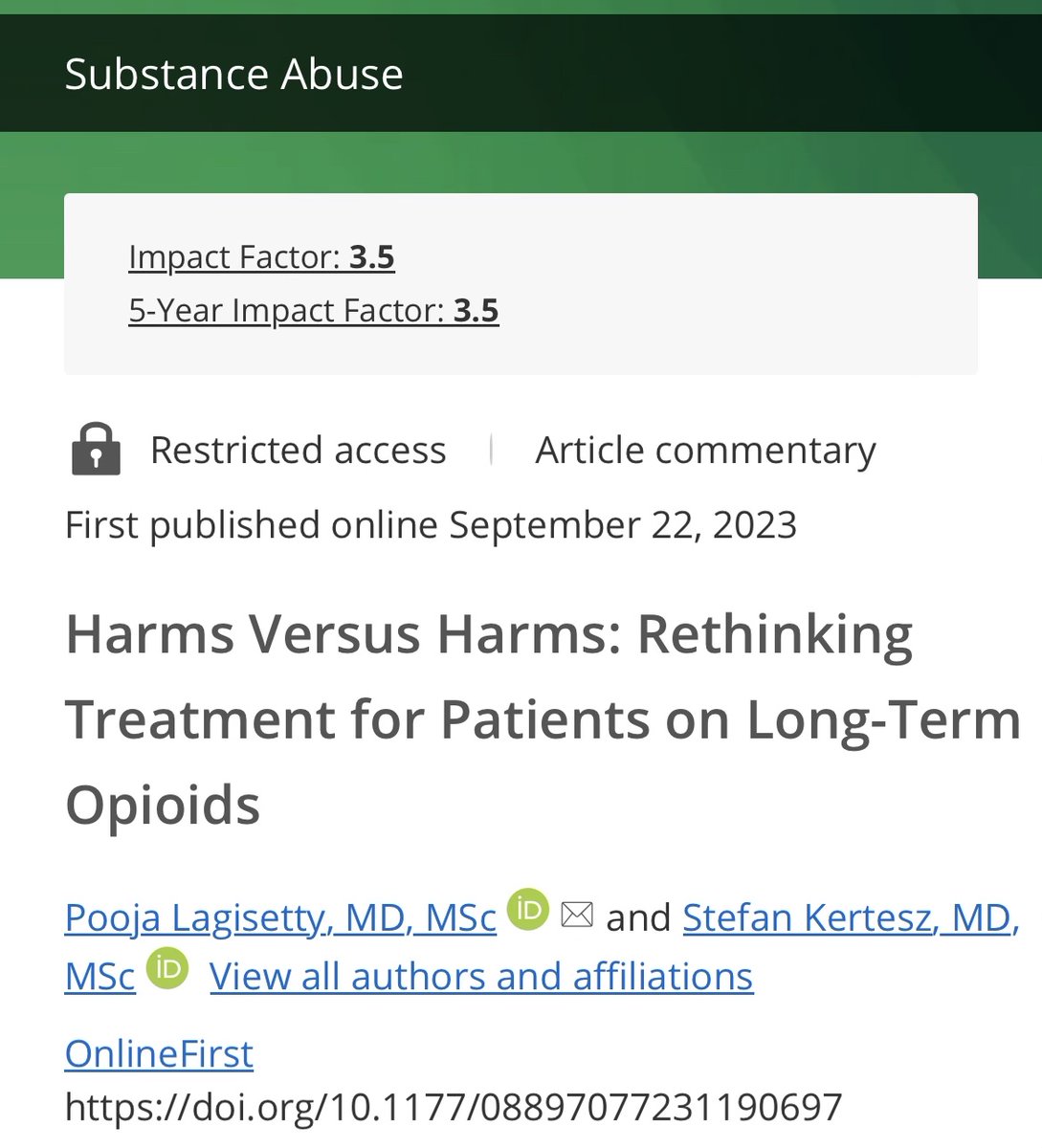1/Until now, there has been no "easy way to ask" whether primary care providers feel ready to manage pain and opioid use disorder- That ends today, thanks to my collaborator Dr. @AllysonVarley, whose paper offers a 10-item survey: CAP-POD journals.sagepub.com/doi/full/10.11… 

2/Combining qualitative & quantitative work, Dr. Varley & team (me included) derived a 10-item survey assessing primary care providers' self-rated
*desire to treat pain OR opioid use
*ability to assess risk
*trust in evidence
*patient's access to recommended therapies!
*desire to treat pain OR opioid use
*ability to assess risk
*trust in evidence
*patient's access to recommended therapies!

3/One use for a survey like this is to help health systems or payers *assess clinicians' readiness to adopt a systems-change to pain or OUD care*.
That matters because MOST changes in this space have failed, full-stop, to assess clinicians' capacity to participate in the change
That matters because MOST changes in this space have failed, full-stop, to assess clinicians' capacity to participate in the change
4/One other concerning finding will resonate with patients and payers:Participating primary care providers had LOWER "Desire to treat" (either pain or OUD) & LOWER confidence in "Patient Access" to needed services, and higher "Trust in Evidence" & capacity in "Assessing Risk"
5/Hats off to a full team of coinvestigators at @UAB and @cappi_uab . And especially my colleague and collaborator @AllysonVarley
• • •
Missing some Tweet in this thread? You can try to
force a refresh

















